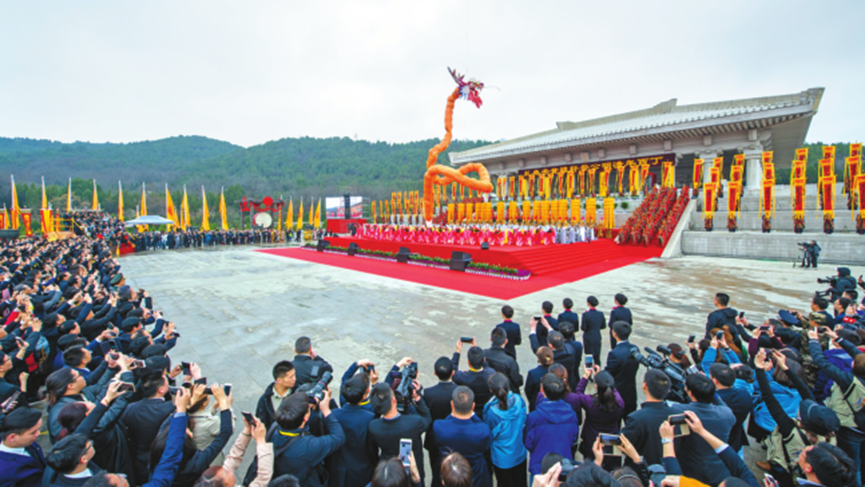Up hill and down dale, Chinese families honour their ancestors at grave sites with tributes at the beginning of every April.
Qingming Festival, also known as Tomb-Sweeping Day, falls on the 15th day after the Spring Equinox (either April 4th or 5th). It is a public holiday in China when Chinese people remember their ancestors together.
Qingming is actually the name of the fifth solar term of the Chinese Lunar Calendar, which divides a year into 24 solar terms.
The festival takes in most of the customs, such as eating cold food and planting trees, from Cold Food Festival. It was originally established to remember JIE Zitui, a loyal minister from Jin, a state in the Chunqiu period (722BC-476BC). Legend has it that JIE followed his lord Price Chong’er in exile, and even cut meat from his own thigh to provide his lord with soup. After Chong’er was enthroned, JIE left his lord to live with his mother in a mountain, for he was not keen on wealth and privilege. Later, Chong’er wanted to meet JIE so eagerly that when JIE refused, Chong’er ordered his men to set fire to the mountain, thinking the fire would drive JIE out. However, both JIE and his mother were killed by the fire. Full of remorse, Chong’er set up Cold Food Festival, banning people from building fires, in memory of the noble and loyal JIE. That is also why Chinese people consume cold food and plant trees on Qingming Festival.

“青团” (Green Buns) – a type of cold food
As one of the four major Chinese traditional festivals, Qingming Festival has a history of more than 2500 years. Important traditions have been kept from the ancient times. Qingming festival marks the middle of spring, when the weather becomes warmer and everything which was silent and hid from the cold winter start to come to life. Thus, related customs are mostly about outdoors activities. People usually go out with family and friends to get closer to nature and enjoy the sceneries. Besides, the rising temperature and increasing rainfall benefit the crops growing, so it is common to see villagers busy with agricultural activities after Qingming.
Qingming Festival is called Tomb-sweeping Day. As its name implies, it is a special day when people recall the deceased and ancestors. For thousands of hundreds of years, Chinese people have been holding all kinds of ceremonies in memory of the ancestors. For example, every year at this time, the public memorial ceremony of the Yellow Emperor is held in Huangling County, Shaanxi Province. According to the legend, after the Yellow Emperor passed away, he went to heaven riding a dragon and left only his clothes, shoes and sword, which were buried in the Mausoleum of the Yellow Emperor.
The Yellow Emperor is the legendary ancestor of Chinese people. It is said that about four thousand years ago, he was the leader of the Huaxia tribe. After defeating the Yan Emperor in a war, he ruled the whole country. During his reign, the primitive agriculture made rapid progress. Meanwhile, primitive cultures like mathematics, music and medical science appeared and kept on developing. These are the foundations of Chinese history and civilizations, which is why Chinese people call themselves “descendants of Huaxia”. Every year, state leaders, famous artists, representatives of Taiwan and lots of overseas Chinese gather at the Mausoleum of the Yellow Emperor to attend the grand ceremony and recall their common ancestor.

The grand public memorial ceremony of the Yellow Emperor
Like the memorial ceremony of the Yellow Emperor, Qingming Festival is a way for Chinese people to express their respect and yearnings to their ancestors. In doing so, it motivates Chinese people to work hard and move forward, keeping Chinese civilizations alive. At the same time, no one can forget who they are and where they come from. It strengthens China’s national unity and international influences, and is the key to the whole country’s prosperity and development.

